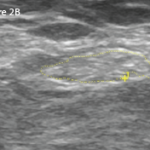There was a decreased risk of flare with a CRP less than or equal to 1.5 mg/dL and less than or equal to 2.0 mg/dL. “However, neither disease duration nor medication use, including biologics, increased the risk of flares; discontinuation of a biologic greater than two-dose intervals prior to surgery did not increase the risk of flares. Use of methotrexate at the time of surgery did not independently protect against the risk of flares,” the researchers wrote.
Note: Study limitations noted by the authors included the possibility of bias if physicians encouraged patients with more severe RA to enroll. It is also possible that the results are not generalizable because the study was performed in a tertiary care hospital with a high RA-specific arthroplasty volume. The study did not have a control group.
Take-Home Messages
The study results are intriguing because they address something not often examined scientifically, said Stuart Kaplan, MD, chief of rheumatology at South Nassau Communities Hospital in Hewlett, N.Y. “The better control you have before surgery, the less likely you are to have a flare afterward. That’s a major take-home message for me. Try to get patients in as good control as possible before surgery,” Dr. Kaplan said.
These findings make intuitive sense, said Dr. Kaplan, adding that he will work with patients to get their RA under optimal control before knee or hip arthroplasty. “It’s a matter of getting them on the right meds, which usually includes methotrexate or biologics and sometimes a little bit of steroids.”
The current standard perioperative care is to stop biologics at the time of arthroplasty to lower the infection risk, the researchers noted in their discussion section. Prosthetic joint infections remain high in RA patients, and there is also a growing rise of infections among patients with RA within 90 days of arthroplasty.
“Despite improvement in the status of patients with RA, poorer outcomes are still reported after arthroplasty, raising concern that postoperative flares linked to withholding medication might affect rehabilitation efforts and outcomes,” the researchers wrote.
“The notion that patients with established RA undergoing [total hip or knee arthroplasty] have ‘burnt out’ disease lends further credence to the spreading idea that RA is an ongoing disease over a lifetime, at best controlled by medication,” the researchers concluded.
Researchers are continuing to collect follow-up data to determine if flares after surgery, when patients are trying to focus on postoperative rehabilitation, have any long-term impacts on pain and function, Dr. Goodman said.


